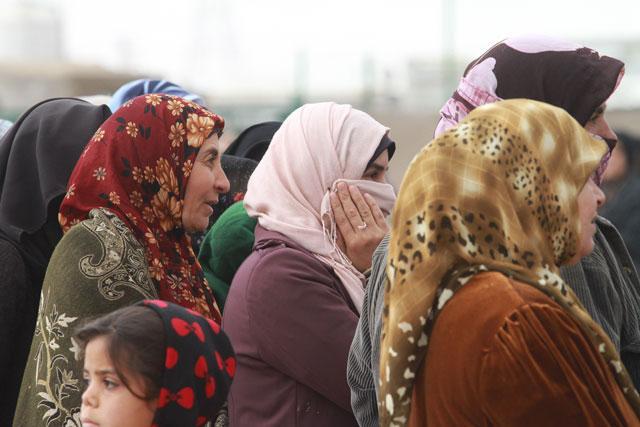- Local News
- Sun-2020-12-06 | 02:29 pm

Nayrouz News Agency :
Underlying the important contribution of Syrian women to economic development in Jordan, Tamkeen for Legal Aid and Human Rights has launched the EU-funded study "Status of Syrian Women Refugees in the Jordanian Labour Market and their Contribution”.
The study, launched on November 27, is part of the Madad for Women gender regional programme "Strengthening access to protection, participation and services for women refugees, IDPs and host communities”, through the EU Regional Trust Fund in Response to the Syrian Crisis, the Madad fund.
It provides an analysis of the Jordanian labour market since the beginning of the Syrian crisis and assesses the contributions of Syrian refugees, in particular women, a statement from the Madad fund said.
The study revealed that refugees represent imported intellectual capital, and the skills they bring from their homeland to the host community are an asset. It also showed that Syrian workers, who had been part of Jordan’s migrant labour force before the start of the conflict, do not seem to overlap with Jordanian workers as they mostly compete with other migrant workers for jobs, according to the statement.
The study also addresses the status of Syrian women workers in the labour market, the working conditions and challenges they face.
The event gathered former senators and members of parliament, as well as representatives of international and national organisations, who were presented with the main findings of the study and recommendations for the way forward.
EU Ambassador to Jordan Maria Hadjitheodosiou said in her opening remarks that "human capital is one of the most important resources in Jordan; 100 per cent of the population living in Jordan, men and women, Jordanian and Syrian refugees, should be in position to contribute to the economic growth and prosperity of this country”.
Insaf Daas, Jordan EU MADAD country manager - Euromed Feminist Initiative EFI, noted that the conference aimed to discuss the impacts of the COVID-19 crisis on women in the labour market and the effects of the crisis on the increasing number of gender-based violence incidents in order to come out with recommendations to mitigate the effects of the crisis on them.
Linda Kalash, executive director of Tamkeen said: "Since the beginning of March, 2020, Tamkeen has modified its services to fit with the community needs that emerged from the outbreak of the coronavirus, where beneficiaries were able to reach Tamkeen’s services through e-platforms and phone calls.”
Ghaleb Hijazi, vice president of the Business Development Centre (BD) addressed the support provided for women in resilience areas within MADAD project managed by the BDC, referring to the negative effect of COVID-19 pandemic on women.
Hijazi noted that MADAD project had a positive impact on women by increasing their employment and self-employment opportunities.
Also through the EU ‘Madad Fund’, the EU together with EFI, the BDC and Tamkeen are working to create opportunities and suitable conditions for women in Jordan to access the labour market and contribute to economic development, the statement said
On November 18 and 19, the BDC organised a two-day online job fair, linking Jordanian and Syrian women with job vacancies in the private sector.
The job fair provided an opportunity for over 100 women from East Amman, Jerash, Ajloun, Azraq and Deir Alla to meet with over 20 private sector companies and business owners covering different sectors, including tourism, services, food and beverages, and marketing and sales. Interested participants also received personalised career guidance, while employers conducted interviews in complete privacy.
This job matching event is in line with the Madad for Women programme objective to increase access to livelihood and job opportunities for women in Jordan, refugees as well as Jordanians, by offering training and employment prospects and matching them with available opportunities.









